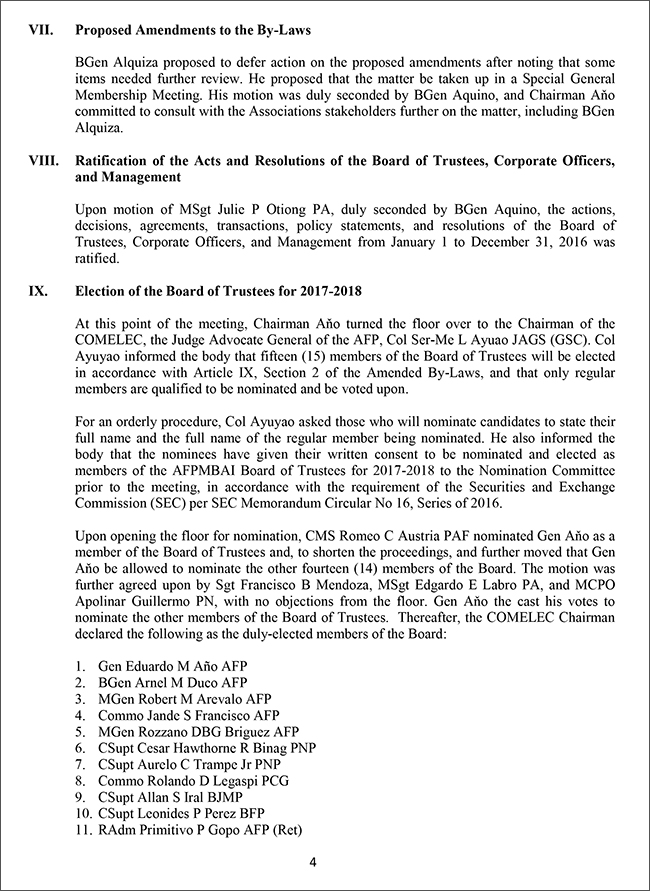Amsterdam Residents File Lawsuit Against City Due To TikTok Influx At Popular Snack Spot

Table of Contents
The TikTok Influx and its Consequences
The sudden popularity of Foodhallen on TikTok has resulted in a dramatic increase in visitors, transforming the once-peaceful neighborhood.
Overcrowding and Disruption
The sheer volume of influencers and their followers visiting Foodhallen daily has caused significant overcrowding. Long queues snake through the market and spill out onto the streets, blocking pedestrian traffic and creating considerable noise pollution. Residents report significant disruptions to their daily lives.
- Impassable streets: Many residents report difficulty accessing their homes and local businesses due to the sheer volume of people.
- Noise pollution: The constant chatter, filming, and music from live streams create an unbearable level of noise, particularly during evening hours.
- Loss of neighborhood feel: The influx of tourists has fundamentally altered the character of the neighborhood, transforming it from a quiet residential area into a bustling tourist destination.
One resident, quoted anonymously in local news, stated, "It's impossible to enjoy our neighborhood anymore. It's become a chaotic mess, and the city seems unwilling to do anything about it." This sentiment echoes the frustrations of many Amsterdam residents grappling with the consequences of TikTok tourism. This Amsterdam overcrowding issue highlights the challenges faced by cities when social media trends drive mass tourism to localized areas.
Impact on Local Businesses
The impact on local businesses within Foodhallen and the surrounding area is a mixed bag. While some vendors report increased sales due to the higher foot traffic, many others struggle to cope with the overwhelming crowds.
- Increased sales for some: Popular food stalls see a significant boost in sales, benefiting directly from the TikTok-driven tourism.
- Difficulty serving regulars: Smaller businesses find it difficult to serve their regular clientele amidst the throngs of influencers and tourists.
- Logistical challenges: The increased foot traffic creates logistical challenges for many vendors, hindering efficient service and potentially impacting food quality.
The Amsterdam economy, while benefiting from increased tourism revenue in some sectors, suffers from the negative consequences felt by struggling businesses. The TikTok tourism effect, while initially beneficial, proves to be a double-edged sword.
Environmental Concerns
The dramatic increase in foot traffic at Foodhallen has raised significant environmental concerns.
- Increased waste: The influx of tourists generates substantially more waste, including food packaging and single-use plastics.
- Carbon footprint: Increased travel to Foodhallen contributes to the city's overall carbon footprint, exacerbating existing environmental concerns.
- Litter: The sheer volume of people contributes to increased littering, impacting the neighborhood's cleanliness and requiring more resources for cleanup.
Addressing these environmental issues related to Amsterdam pollution, generated by the TikTok-driven tourism surge, is crucial for sustainable urban development.
The Lawsuit Against the City of Amsterdam
The class-action lawsuit filed by Amsterdam residents against the city alleges a failure to adequately regulate tourism and address the negative consequences of the TikTok-fueled influx of visitors to Foodhallen.
Residents' Claims
Residents claim that the city has failed in its duty to protect their quality of life and maintain a peaceful living environment. Their legal arguments center around:
- Nuisance: The excessive noise, overcrowding, and disruption of daily life constitute a significant public nuisance.
- Failure to regulate tourism: The city's lack of proactive measures to manage the influx of tourists, particularly those driven by social media trends, is cited as a key failing.
- Lack of infrastructure: The existing infrastructure is inadequate to cope with the sudden surge in visitors, leading to the current problems.
The residents' legal representatives are seeking compensation for the disruption and demanding the city implement measures to better manage tourism in the area.
The City's Response
The city of Amsterdam has acknowledged the concerns raised by residents but has yet to offer a comprehensive solution. Their response has been largely defensive, emphasizing the economic benefits of tourism while acknowledging the need for better management strategies.
- Limited action taken: So far, the city has implemented only limited measures, such as increased waste disposal services in the area.
- Future strategies discussed: The city council is currently discussing potential long-term strategies for managing tourist crowds in popular areas, including the possibility of implementing crowd control measures and better public transportation.
- Ongoing dialogue: The city council is engaging in ongoing dialogue with residents and business owners to find solutions acceptable to all stakeholders.
The Amsterdam council's response demonstrates the complexity of balancing the economic benefits of tourism with the needs of local communities.
Potential Outcomes
The outcome of the Amsterdam TikTok lawsuit remains uncertain. However, several potential outcomes exist:
- Favorable ruling for residents: A favorable ruling could force the city to implement stricter regulations on tourism and compensate residents for the disruption they have suffered.
- Compromise solution: A compromise could involve the city agreeing to implement specific measures to manage tourism while potentially offering some financial compensation.
- Dismissal of the case: Dismissal of the case would leave the city free to continue its current approach to tourism management, potentially leading to similar conflicts in the future.
This case could set a significant precedent for other cities facing similar challenges related to social media-driven tourism. The Amsterdam future depends on how effectively it navigates this complex issue.
Conclusion
The Amsterdam TikTok lawsuit highlights the significant challenges faced by cities grappling with the rapid and unpredictable impact of social media on local communities. The overwhelming influx of TikTok influencers at Foodhallen, the resulting disruption for residents and businesses, and the subsequent lawsuit against the city represent a critical turning point in the discussion of how cities manage the effects of viral social media trends. This landmark case serves as a warning and a potential model for other urban centers worldwide. The Amsterdam TikTok lawsuit underscores the urgent need for cities to develop proactive strategies for managing the impact of social media on local communities. Stay informed about the developments in this landmark case and consider the implications for your own city’s approach to managing the effects of viral social media trends. Learn more about the Amsterdam TikTok lawsuit and its potential to reshape how cities manage tourism in the age of social media.

Featured Posts
-
 A Seattle Womans Pandemic Refuge Finding Solace In Urban Green Space
May 24, 2025
A Seattle Womans Pandemic Refuge Finding Solace In Urban Green Space
May 24, 2025 -
 Philips 2025 Agm A Summary Of Important Announcements
May 24, 2025
Philips 2025 Agm A Summary Of Important Announcements
May 24, 2025 -
 Dylan Dreyers Near Miss Why She Almost Didnt Host The Today Show
May 24, 2025
Dylan Dreyers Near Miss Why She Almost Didnt Host The Today Show
May 24, 2025 -
 3 Burc Icin Mayis Ayinda Askin Guecue
May 24, 2025
3 Burc Icin Mayis Ayinda Askin Guecue
May 24, 2025 -
 The Ultimate Escape To The Country Everything You Need To Know
May 24, 2025
The Ultimate Escape To The Country Everything You Need To Know
May 24, 2025
